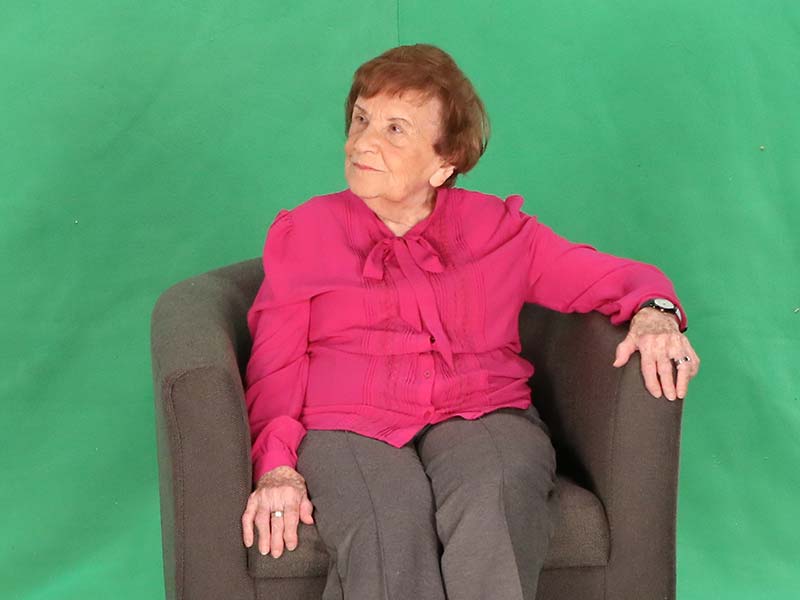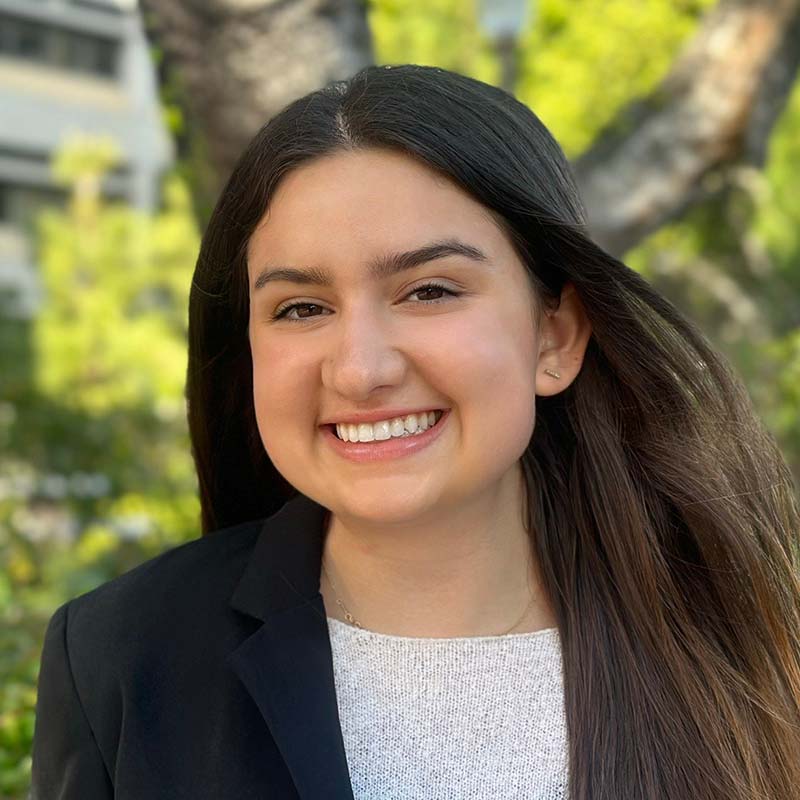Lea Zajac de Novera’s Dimensions in Testimony Brings Spanish-Language Holocaust Education to Classrooms

The USC Shoah Foundation and The Latin American Network for Education on the Shoah (Red LAES) have launched a new educational web page featuring the first Spanish-language Dimensions in Testimony (DiT), an interactive biography that invites students to engage in conversation with the recorded testimony of a Holocaust survivor.
The Dimensions in Testimony interview with Lea Zajac de Novera, a Polish Jew who survived four Nazi concentration camps and became an early member of the Holocaust Museum in Buenos Aires, is available through the USC Shoah Foundation’s award-winning IWitness educational platform.
The launch of the web page marks the first time educators and students can interact with a Spanish-language Dimensions in Testimony directly from their classrooms, enabling students to receive real-time responses from Lea Zajac de Novera’s recorded interview.
Available to educators at no cost, the page also features clips from Lea’s 1997 interview with the USC Shoah Foundation and offers downloadable Spanish-language educational activities, including guidelines for interacting with the Dimensions in Testimony interview.
Red LAES is a network of 14 Holocaust memorial organizations across Latin America. The USC Shoah Foundation and Red LAES formed an educational partnership in April 2023 to study, teach, and spread awareness about the Holocaust in Latin America.
The USC Shoah Foundation Visual History Archive contains more than 52,000 testimonies from Holocaust survivors and witnesses, 1,347 of which were recorded in Spanish.
“Latin America plays an important role in ensuring strong and honest engagement with the history and legacy of the Holocaust,” said USC Shoah Foundation Finci-Viterbi Executive Director Dr. Robert J. Williams when the partnership launched in 2023. “Many countries in the region provided refuge to survivors of the Shoah after 1945, and it is our collective responsibility to ensure that their histories and experiences help shape global understanding for future generations.”
The addition of a classroom-accessible Dimension in Testimony interview to the Spanish-language resources offers educators a powerful tool with which to engage students. Since the Dimensions in Testimony program launched in 2014, more than 60 interviews have been recorded in ten languages and are available in museums around the world as well as on the IWitness educational platform.
Lea Zajac de Novera filmed her Dimensions in Testimony interview with USC Shoah Foundation in 2018.
Born on December 31, 1926, in Hajnówka, Poland, Lea Zajac de Novera grew up in a lower-middle-class family and attended a Polish primary school.
In 1942, Lea, her parents, and her two siblings were forced to move to the Pruzhany ghetto, and in 1943, they were deported to the Auschwitz II-Birkenau concentration camp. As Lea’s mother was being sent to the gas chamber, she shouted to Lea to go with her Aunt Sara to the group of those fit for work. Lea lied about her age and became a slave laborer. Her parents and siblings were killed.
While imprisoned in Auschwitz, Lea suffered a knee injury and was admitted to the camp hospital. There, she befriended a doctor who saved her from selections that would have sent her to the gas chambers. A secretary also helped her by erasing her name from a death order signed by Dr. Mengele.
In January 1945, Lea and her Aunt Sara were sent on a death march, first to Ravensbrück concentration camp and later to Leipzig-Mansfeld concentration camp. They were liberated by Soviet armed forces in April 1945.
After the war, Lea’s aunt immigrated to Israel and Lea immigrated to Argentina in 1947. She married Holocaust survivor Marcos Novera and they had two children. Lea became one of the Buenos Aires Holocaust Museum's first members and a member of the LAES Network. She also wrote a book about her experiences.
Like this article? Get our e-newsletter.
Be the first to learn about new articles and personal stories like the one you've just read.
